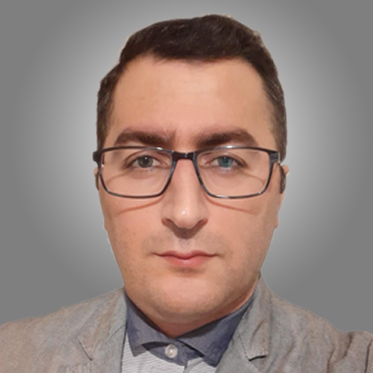Reflections on the Legacy of Sociolinguistics

Alexandre Duchen̂e, professor of sociolinguistics at the University of Fribourg, in his article, "Multilingualism: An insufficient Answer to Sociolinguistics Inequalities" discusses sociolinguistic achievements and issues in relation to monolingualism and multilingualism, for pursuing social justice and equalities. He describes that from the mid-nineteenth century to the middle of the twentieth century the idea and practice of monolingualism was praised, and conversely, bilingualism was stigmatized and pathologized. The superiority of monolingualism shifted in favour of multilingualism as recognition of diverse linguistic identities supported by a strong surge in advocacy of diversity, especially proponents of linguistic human rights. Duchen̂e states that recognizing minority identities from their linguistic diversity is not enough, but "redistribution" of linguistic diversity is important to consider and study under the supervision of sociolinguists. This review evaluates Duchen̂e's concerns by examining the linguistic issues in the Kurdistan Region of Iraq and highlights that some groups and linguistic identities are still facing assimilation and so recognition is a matter of international acceptance and survival.
Monolingualism was a widely used approach to solve the linguistic issues which nations confronted at the early establishment of the modern nation-states in the nineteenth and twentieth century. Standardization of a language became a norm and other languages and dialects were suppressed or placed in a lower rank. But from the mid-twentieth century to the present day linguistic studies' central focuses are on alerting the endangerment of linguistic diversity. This encouraged many to study different languages, and planning and policy was changed to protect linguistic diversity. For instance, the terms such as "linguistic human rights" (Skutanbb Kangas and Phillipson, 2017), "linguicide" (Hassanpour, 1999) were created in support of hegemonized and oppressed minorities to be considered within multilingual education and communities. Calls for recognition of diverse linguistic grounds were considered as practicing social justice and combating inequalities. Various scholars and studies, for instance, Tove Skutanbb Kangas and Robert Phillipson's contributions, reflect the urgency and significance of these issues.
In light of this, Duchen̂e makes cautious steps in his study and suggests reconsidering studying this shift; from a negative monolingualism approach to a positive perspective and attitude towards multilingualism. Duchen̂e, however, values the importance of recognizing linguistic identities and its discourses, and he highlights that multilingualism is silent in regard to power relations and social conditions that shape the idea of multilingualism. He claims that the new perspective, which demands recognition to pursue social justice, wasn't a proper solution as it creates more complexity to the linguistic social order. Multilingualism is not neutral but generates more social inequalities and hierarchies. For instance, he says for workers in a multilingual company, Japanese in their language repertoire may be considered as a desirable language, but Portuguese or Spanish as a multilingual repertoire can be seen as a disadvantage since it implies racial and class differences.
Furthermore, Duchen̂e reflects on Nancy Fraser's (2003) idea of the necessity for "redistribution" as something more significant than "recognition." According to Fraser, all efforts of recognition were for promoting social justice for spoiled identities. Fraser pinpoints issues with the recognition approach and believes that recognition itself is a barrier for redistribution, and moreover, challenges logics of solidarity by inciting competition among the identity groups. Duchen̂e agrees with Fraser and argues that recognized multilingualism can be like a regime in the interest of the initial redistributors. For instance, Del Percio (2016) in his work on recognizing multilingualism by the Swiss state as branding a nation creates this question; so what can be said, for instance, regarding the historical nature of the original people of Switzerland? Duchen̂e highlights Fraser's view of the position of political economy to make a language desirable or not, which then produces social inequalities and hierarchies.
Duchen̂e, finally, emphasises the important role of academics to clarify their stance. He suggests academic studies should concentrate on allowing the ground for reclaiming redistribution. He also stresses inviting the structural and material inequalities to participate in their redistribution for contribution to the diversity. In view of this, it is worth examining the case of the Kurdish language in northern Iraq with Duchene's concerns. When a new republic of Iraq was built in 1958, Arabic was known as the language of the state. However, other cultural minorities existed in Iraq and Kurds constitute a significant minority. Decades of Kurdish struggle with the Iraqi state has a long history for political recognition as cultural-linguistic human rights were included in their demands. In 2005 two years after the collapse of Saddam's regime, a new Iraqi constitution was introduced and Kurdish recognized as an official language along with Arabic. Under the impact of the superiority of monolingualism era and narrative, a conference was held in 2010 in Erbil to recognize the Sorani dialect as the standard Kurdish language among other Kurdish dialects. Sheyholislami (2012) illustrates the effectiveness of the role of power relations in these efforts for standardization of Sorani. At the end, Amir Hassanppour's studies (1992) convinced the participants of the conference to consider two Kurdish dialects, Kurmanji and Sorani, as official dialects to represent the Kurdish language (Sheyholislami, 2012). The Kurdistan Regional Government did not standardize any of them as demand for further studies increased. However, the Kurdish monolingualism approach is still working on their standardization project to the present day; the demand for further linguistic inquiries motivated the multilingualism approach to study the nature of other Kurdish dialects to take part in a new redistribution scenario. This is a clear example of forming competition among groups over their statuses. These struggles and challenges for recognition had various implications; voices for linguistic human rights, and even suggesting addressing Kurdish as a number of languages in a language continuum rather than dialect continuum (Paul, 2008. Sheyholislami, 2012).
In conclusion, Duchen̂e acknowledges the historical stages in relation to monolingualism to multilingualism. His concerns are that recognition of multilingualism is not the best solution for sociolinguistics' inquiries, or in more general context, for social inequalities. He calls for recognition and active participation for redistribution. The example of the Kurdish in northern Iraq is an example that shows the significant role of scholars who acted beyond the term of recognition, for further redistributions. Considering advanced studies on how to approach linguistic issues, the Kurdish linguists with their studies and stances were always cautious.
The views expressed in this article are those of the author and do not necessarily reflect the views of Kurdistan 24.
Bibliographical References
Del Percio, A. (2016) Branding the nation, Swiss multilingualism and the promotional capitalization on national history under late capitalism, [online] Available from: https://www.duo.uio.no/bitstream/handle/10852/59101/Branding%2bthe%2bnation.pdf?sequence=2&isAllowed=y [Accessed 13 November 2020].
Duchen̂e, A. (2019) Multilingualism: An insufficient Answer to Sociolinguistics Inquiries, [online]. Available from: https://items.ssrc.org/sociolinguistic-frontiers/multilingualism-an-insufficient-answer-to-sociolinguistic-inequalities/ [Accessed 12 November 2020].
Fraser, N. Honneth, A. (2003) Redistribution or Recognition? A Political-Philosophical Exchange. London and New York: Verso.
Hassanpour, A. (1992) Nationalism and Language in Kurdistan, 1918-1985. San Francisco: Mellon Research University Press.
Hassanpour, A. (1999) The Politics of A-political Linguistics: Linguists and Linguicide, [online]. Available from: http://kurdishacademy.org/wp/the-politics-of-a-political-linguistics-linguists-and-linguicide/ [Accessed 11 November 2020].
Paul, L. (2008) Kurdish Language: the History of the Kurdish Language. Available from: https://iranicaonline.org/articles/kurdish-language-i [Accessed 8 November 2020].
Sheyholislami, J. (2012) Language and Nation-building in Kurdistan-Iraq, [online]. Available from: https://www.researchgate.net/publication/267957869_Language_and_Nation-Building_in_Kurdistan-Iraq [Accessed 9 November 2020].
Skutanbb Kangas, T. Phillipson, R. (2017) Linguistic Human Rights, past and present, [online]. Available from: https://www.researchgate.net/publication/311452886_Linguistic_human_rights_past_and_present [Accessed 10 November 2020].
